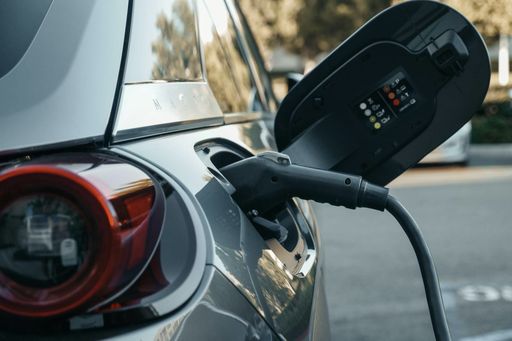The First Wireless Electric Road in the US Opens in Detroit
Detroit has become home to the first wireless electric road in the US, allowing electric vehicles to charge while driving. However, with a cost of nearly $2 million per mile, there are questions about its feasibility as a widespread transport solution.

Driving on Electric
14th Street in Detroit, Michigan is now home to the first public wireless electric road in the US. Electric vehicles can now drive along this stretch without draining their batteries, as the road is designed to charge them as they drive.
The technology involves laying electromagnetic coils under the road's surface, which are connected to the city's power grid. These coils create an electromagnetic field above the road, transferring energy to a receiver attached to the vehicle's battery through inductive charging.
This wireless technology addresses one of the main concerns of electric vehicle owners – range anxiety. By allowing vehicles to gain additional charge as they drive, it could potentially extend the range of electric vehicles or remove the need for plug-in charging altogether.
The Future of Charging
Stefan Tongur, vice president of business development at Electreon, believes that wireless charging is the future of electric vehicles. He predicts that the evolution of charging will move from cords to wireless systems, with roads acting as charging stations for vehicles.
The cost of installing wireless charging infrastructure is a concern, with the Detroit project costing nearly $2 million per mile. Tongur believes that as the technology matures, the cost will decrease, making it more practical.
Wireless charging may not need to be deployed on every road, according to Tongur. Its implementation can be strategic, focusing on transit corridors frequented by commercial fleets such as buses and trucks, where there are cost benefits to keeping the vehicles in use rather than stopping for a charge.
Challenges and Opportunities
While the wireless electric road in Detroit shows promise, there are still challenges to overcome. The current cost of implementation is high, making it impractical for large-scale deployment. However, Tongur anticipates that the cost per mile and per receiver will decrease over time.
Electreon is also exploring different pricing models to make the service more affordable. A subscription-based model is being offered for continuous use by operators of public, commercial, and autonomous vehicles. Additionally, a pay-as-you-go model could be suitable for casual road users looking to charge their vehicles on a journey.
The concept of electric roads is gaining traction globally. Several countries in Europe, such as France, Germany, and Sweden, have plans to build extensive networks of electrified roads. Electric road technology is also being piloted in various locations across Europe and the US.


